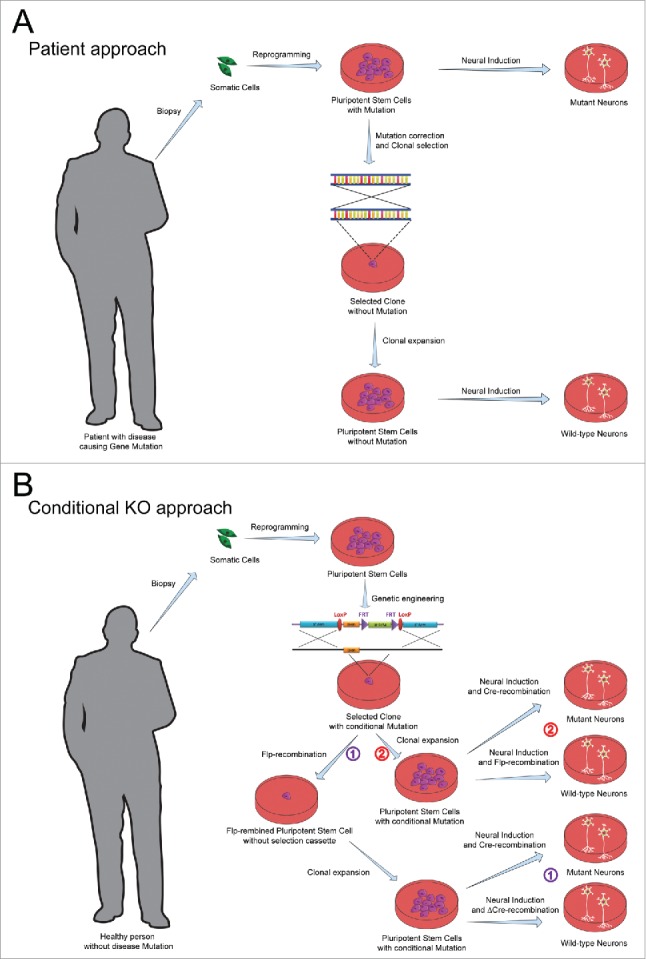The conditional KO approach: Cre/Lox technology in human neurons.
Rare diseases (Austin, Tex.)
Pub Date : 2016-02-18
eCollection Date: 2016-01-01
DOI:10.1080/21675511.2015.1131884
引用次数: 10
Abstract
ABSTRACT The use of human pluripotent stem cells to model human diseases has become a new standard in biomedical sciences. To this end, patient-derived somatic cells are studied in vitro to mimic human pathological conditions. Here, we describe an alternative experimental strategy, the ‘conditional KO approach’, which allows engineering disease-relevant mutations in pluripotent stem cells from healthy donors. In combination with the Cre/Lox technology, this strategy enables us to study the molecular causes of human diseases independent of the genetic background or of genetic alterations induced by clonal selection. As a proof-of-principle, we generated pluripotent stem cells with conditional loss-of-function mutations in the human STXBP1 gene that encodes Munc18-1. Using neurons derived from these cells, we show that heterozygous disruption of STXBP1 produces a specific and selective impairment in synaptic transmission that may account for the severe neurological disease caused by such mutations in human patients.


条件KO方法:人神经元的Cre/Lox技术。
利用人类多能干细胞模拟人类疾病已成为生物医学科学的新标准。为此,在体外研究患者来源的体细胞以模拟人类病理状况。在这里,我们描述了另一种实验策略,即“条件KO方法”,该方法允许在来自健康供体的多能干细胞中设计与疾病相关的突变。结合Cre/Lox技术,该策略使我们能够独立于遗传背景或克隆选择诱导的遗传改变来研究人类疾病的分子原因。作为原理证明,我们在编码Munc18-1的人类STXBP1基因中产生了条件性功能丧失突变的多能干细胞。利用这些细胞衍生的神经元,我们发现STXBP1的杂合破坏在突触传递中产生特异性和选择性损伤,这可能解释了人类患者中由此类突变引起的严重神经系统疾病。
本文章由计算机程序翻译,如有差异,请以英文原文为准。
求助全文
约1分钟内获得全文
求助全文

 求助内容:
求助内容: 应助结果提醒方式:
应助结果提醒方式:


